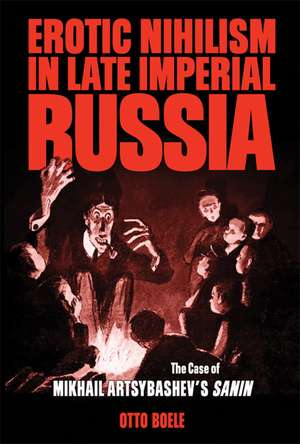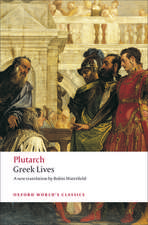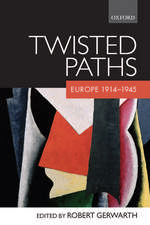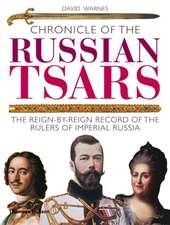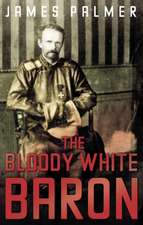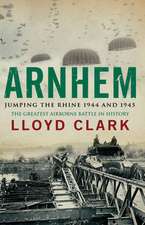Erotic Nihilism in Late Imperial Russia: The Case of Mikhail Artsybashev's Sanin
Autor Otto Boeleen Limba Engleză Paperback – 23 noi 2009
Banned shortly after its publication in 1907, the Russian novel Sanin scandalized readers with the sexual exploits of its eponymous hero. Wreaking havoc on the fictional town he visits in Mikhail Artsybashev’s story, the character Sanin left an even deeper imprint on the psyche of the real-life Russian public. Soon “Saninism” became the buzzword for the perceived faults of the nation. Seen as promoting a wave of hedonistic, decadent behavior, the novel was suppressed for decades, leaving behind only the rumor of its supposedly epidemic effect on a vulnerable generation of youth.
Who were the Saninists, and what was their “teaching” all about? Delving into police reports, newspaper clippings, and amateur plays, Otto Boele finds that Russian youth were not at all swept away by the self-indulgent lifestyle of the novel’s hero. In fact, Saninism was more smoke than fire—a figment of the public imagination triggered by anxieties about the revolution of 1905 and the twilight of the Russian empire. The reception of the novel, Boele shows, reflected much deeper worries caused by economic reforms, an increase in social mobility, and changing attitudes toward sexuality.
Showing how literary criticism interacts with the age-old medium of rumor, Erotic Nihilism in Late Imperial Russia offers a meticulous analysis of the scandal’s coverage in the provincial press and the reactions of young people who appealed to their peers to resist the novel’s nihilistic message. By examining the complex dialogue between readers and writers, children and parents, this study provides fascinating insights into Russian culture on the eve of World War I.
Who were the Saninists, and what was their “teaching” all about? Delving into police reports, newspaper clippings, and amateur plays, Otto Boele finds that Russian youth were not at all swept away by the self-indulgent lifestyle of the novel’s hero. In fact, Saninism was more smoke than fire—a figment of the public imagination triggered by anxieties about the revolution of 1905 and the twilight of the Russian empire. The reception of the novel, Boele shows, reflected much deeper worries caused by economic reforms, an increase in social mobility, and changing attitudes toward sexuality.
Showing how literary criticism interacts with the age-old medium of rumor, Erotic Nihilism in Late Imperial Russia offers a meticulous analysis of the scandal’s coverage in the provincial press and the reactions of young people who appealed to their peers to resist the novel’s nihilistic message. By examining the complex dialogue between readers and writers, children and parents, this study provides fascinating insights into Russian culture on the eve of World War I.
Preț: 233.67 lei
Nou
Puncte Express: 351
Preț estimativ în valută:
44.75€ • 46.11$ • 37.49£
44.75€ • 46.11$ • 37.49£
Carte tipărită la comandă
Livrare economică 24 februarie-10 martie
Preluare comenzi: 021 569.72.76
Specificații
ISBN-13: 9780299232740
ISBN-10: 0299232743
Pagini: 274
Ilustrații: 7 b-w illus.
Dimensiuni: 152 x 229 x 18 mm
Greutate: 0.34 kg
Ediția:1
Editura: University of Wisconsin Press
Colecția University of Wisconsin Press
ISBN-10: 0299232743
Pagini: 274
Ilustrații: 7 b-w illus.
Dimensiuni: 152 x 229 x 18 mm
Greutate: 0.34 kg
Ediția:1
Editura: University of Wisconsin Press
Colecția University of Wisconsin Press
Recenzii
“An admirable blend of history and literature, showing how the two complement each other.”—Louise McReynolds, author of Russia at Play: Leisure Activities at the End of the Tsarist Era
“An original, stimulating, and needed book, based on a rich array of archival and published sources. Situating his work at the nexus of regulation, poetics, rumor, and literary history, Boele carefully examines an important work of literature and its impact on the cultural mythology of its age.”—Eric Naiman, author of Sex in Public: The Incarnation of Early Soviet Ideology
“With meticulous scholarship and reasoned arguments, Otto Boele crafts a compelling tale about the realities, the legend, and the memory of a celebrated cultural moment in Russian life under the tsars.”—Richard Stites, author of Russian Popular Culture: Entertainment and Society since 1900
“This is a penetrating, wide-ranging, often entertaining treatment of a fascinating episode. Summing Up: Recommended.”—D.B. Johnson, Choice
“The precision and depth of Boele’s reception study make it an impressive example of the genre, a model of its kind.”—Dale Peterson, Russian Review
“A rewarding revision of Sanin’s distorted critical legacy.”—Muireann Maguire, The Slavonic and East European Review
“Otto Boele’s intelligent and meticulous study of Sanin will help the reader better understand not only the history of sexual discourses in Russia but also the intellectual climate there in the early twentieth century. It is exceptionally rich in new materials, and it features a good deal of insightful and sophisticated analysis. Boele’s book will prove instructive reading for both college-level students of Russian literature and more mature scholars.”—Evengii Bershtein, Canadian Slavonic Papers
"A superbly written work making several important contributions to the study of Russian culture."—Alexander Sorochan, New Literary Observer
Notă biografică
Otto Boele is assistant professor of Russian literature at the University of Leiden, the Netherlands.
Cuprins
List of Illustrations
Acknowledgments
A Note on Transliteration, Translation, and Dates
Introduction
1 The Canon of Epoch-making Heroes
2 Sanin: A Hero of Our Time?
3 Counterliterature
4 The Pornographic Roman à Thèse
5 Sanin and Its Readers: A Bible for an Entire Generation?
6 Hard-core Saninism: The Case of the Free Love Leagues
7 Muscles for Money: Sanin as Ex-student
Conclusion
Appendix
Notes
Index
Acknowledgments
A Note on Transliteration, Translation, and Dates
Introduction
1 The Canon of Epoch-making Heroes
2 Sanin: A Hero of Our Time?
3 Counterliterature
4 The Pornographic Roman à Thèse
5 Sanin and Its Readers: A Bible for an Entire Generation?
6 Hard-core Saninism: The Case of the Free Love Leagues
7 Muscles for Money: Sanin as Ex-student
Conclusion
Appendix
Notes
Index
Descriere
Banned shortly after its publication in 1907, the Russian novel Sanin scandalized readers with the sexual exploits of its eponymous hero. Wreaking havoc on the fictional town he visits in Mikhail Artsybashev’s story, the character Sanin left an even deeper imprint on the psyche of the real-life Russian public. Soon “Saninism” became the buzzword for the perceived faults of the nation. Seen as promoting a wave of hedonistic, decadent behavior, the novel was suppressed for decades, leaving behind only the rumor of its supposedly epidemic effect on a vulnerable generation of youth.
Who were the Saninists, and what was their “teaching” all about? Delving into police reports, newspaper clippings, and amateur plays, Otto Boele finds that Russian youth were not at all swept away by the self-indulgent lifestyle of the novel’s hero. In fact, Saninism was more smoke than fire—a figment of the public imagination triggered by anxieties about the revolution of 1905 and the twilight of the Russian empire. The reception of the novel, Boele shows, reflected much deeper worries caused by economic reforms, an increase in social mobility, and changing attitudes toward sexuality.
Showing how literary criticism interacts with the age-old medium of rumor, Erotic Nihilism in Late Imperial Russia offers a meticulous analysis of the scandal’s coverage in the provincial press and the reactions of young people who appealed to their peers to resist the novel’s nihilistic message. By examining the complex dialogue between readers and writers, children and parents, this study provides fascinating insights into Russian culture on the eve of World War I.
Who were the Saninists, and what was their “teaching” all about? Delving into police reports, newspaper clippings, and amateur plays, Otto Boele finds that Russian youth were not at all swept away by the self-indulgent lifestyle of the novel’s hero. In fact, Saninism was more smoke than fire—a figment of the public imagination triggered by anxieties about the revolution of 1905 and the twilight of the Russian empire. The reception of the novel, Boele shows, reflected much deeper worries caused by economic reforms, an increase in social mobility, and changing attitudes toward sexuality.
Showing how literary criticism interacts with the age-old medium of rumor, Erotic Nihilism in Late Imperial Russia offers a meticulous analysis of the scandal’s coverage in the provincial press and the reactions of young people who appealed to their peers to resist the novel’s nihilistic message. By examining the complex dialogue between readers and writers, children and parents, this study provides fascinating insights into Russian culture on the eve of World War I.
